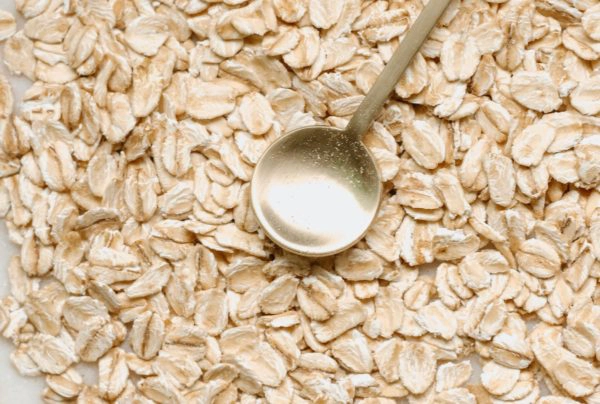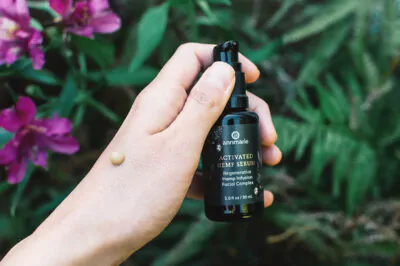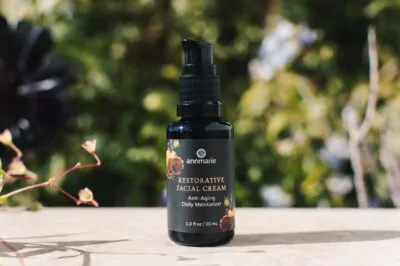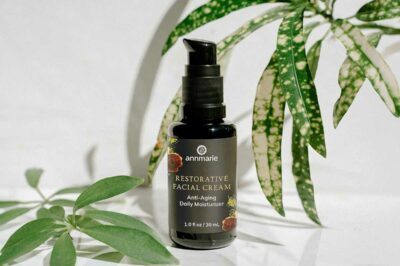Your skin itches, it’s red, and you’re seeing little flakes. Could it be eczema? Here’s how to tell, and what you can do to help your skin look and feel better.
Don’t scratch! Try the natural remedies listed below to
soothe the itch of eczema.
What is eczema?
Scientifically called “atopic dermatitis,” eczema is a chronic skin condition that causes redness, itchiness, dryness, cracking and flaking. Though most common among young children, it can also affect adults of both genders, with symptoms generally appearing on the arms, hands, feet, ankles, wrists, face, neck, upper chest, or behind the knees, though it can affect the skin anywhere on the body.
Eczema is also usually cyclical, meaning that it can come and go, flaring up and times and subsiding at others. Additional symptoms that get worse during a flare-up may include the following:
- Broken skin
- Itching that gets worse at night
- Blisters and weeping
- Small, raised bumps
- Thickened, leathery skin
What causes eczema?
Doctors aren’t sure what causes eczema to occur in the first place, but they believe it has a genetic tendency, in that if your parents had it, you will have an increased risk for getting it, as well. Scientists also believe there is a connection between the most common type of eczema (atopic dermatitis) and asthma and allergic rhinitis (hay fever).
Eczema flare-ups also seem to be susceptible to certain “triggers,” like stress, harsh weather, extreme heat or col, and harsh detergents, all of which can aggravate skin enough to cause a renewed cycle of inflammation, itching, and dryness.
Left untreated, eczema can cause uncontrollable scratching that can lead to skin damage and scarring, as well as to thick and leathery skin and changes in skin color. Scratching can also encourage open sores and infections.
What are the typical treatments?
If you suspect you have eczema, your doctor will likely examine your skin, review your medical history and make his best guess, but there is no one test to determine whether you definitely have it. Most dermatologists can tell with a high level of success if eczema is what’s causing your uncomfortable symptoms.
Standard treatments involve:
- over-the-counter anti-itch creams,
- antibiotics (if you have an infection),
- oral antihistamines (to counteract the itching),
- oral or injected corticosteroids (to reduce inflammation and control serious symptoms),
- medications that affect the immune system to reduce flare-ups
- light therapy
Fortunately, there are many things you can do on your own, first, before resorting to drugs and injections, that can help keep your eczema under control.
Finding your triggers
First of all, you’ll want to take a look at your normal routine to discover what may be triggering your eczema flare-ups. Keep a regular journal for a few weeks and try to identify what elements in your diet or lifestyle may be influencing your skin. Some possible triggers include:
- Stress
- Rapid changes in temperature
- Sweating
- Dry air (winter air)
- Certain fabrics, like wool
- Cigarette smoke
- Dust and sand, including house dust mites
- Harsh soaps and detergents (particularly those with sulfates)
In addition, some foods, including dairy, eggs, nuts, soy, and wheat, can be triggers for some people. Though it may take time to narrow down the list for your flare-ups, try to stick with it, as the more you can reduce your triggers, the better your skin will feel.
Natural remedies that may help
In addition to identifying your triggers, you can try some natural remedies that are likely to reduce flare-ups. No matter what you do, avoid scratching, as it can cause permanent damage on your skin.

- Oatmeal bath: Grind up all-natural oatmeal and sprinkle it into your bath—it’s can help calm skin.
- Choose cleansers wisely: Avoid all harsh cleansers, particularly those with sulfates. Always go fragrance-free or choose products with scents from natural sources, like essential oils.
- Use a humidifier: Dry air is a common trigger for eczema, so keep a humidifier in your home and/or office, and especially in your bedroom.
- Wear cotton clothes: Synthetic materials can irritate skin—go for natural fibers.
- Fish oil supplements: These are rich in essential fatty acids, which have been linked with skin health. According to the University of Maryland Medical System, one study showed that people taking fish oil supplements experienced significant reduction in eczema symptoms after 12 weeks. Researchers theorized that the fish oil helps tame inflammation. An earlier study showed similar results, though other studies did not find participants to improve when taking capsules.
- Try probiotics: These may boost the immune system and hep control allergies, which may help reduce symptoms of eczema.
How do you reduce eczema flare-ups? Please share your tips.
* * *
Sources
A Takwale, et al., “Efficacy and tolerability of borage oil in adults and children with atopic eczema: randomized, double blind, placebo controlled, parallel group trial,” BMJ 2003; 327: 1385, http://www.bmj.com/content/327/7428/1385.
Henz BM, et al., “Double-blind, multicentre analysis of the efficacy of borage oil in patients with atopic eczema,” J Dermatol 1999 Apr;140(4):685-8, http://www.ncbi.nlm.nih.gov/pubmed/10233322.








I have been suffering from terrible eczema for the past four years and prescription medications help control it, but not well. Foderma serum has almost cleared my skin in only a few weeks. It soothes the itching and I only have to use steroids occasionally now. I would recommend foderma to anyone with dry sensitive skin.